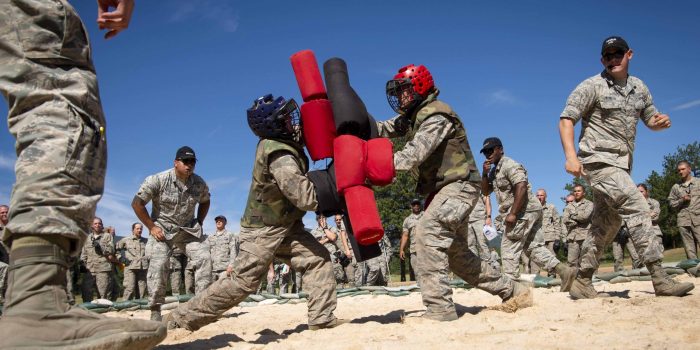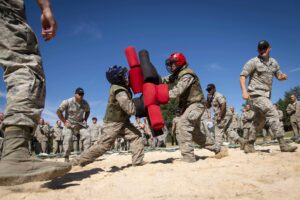The typical story from veterans seeking benefits 20 to 30 years after service is that they never reported their injuries while on active duty. And now they are in an unanticipated fight for benefits.
No one anticipates a prolonged fight for benefits with the VA. The rules of the game seem so straight forward. But after 10+ years of focusing on veterans and their benefits as a medical expert both inside and outside the VA and hearing thousands of stories, there are two things that I would advise the active duty service member.
Email Yourself.
When a service member gets injured, the story I hear from most veterans is “I didn’t report the event because…” That’s not going to help the service member when it’s time to apply for benefits. I recommend that the active duty service member send an email to their personal email account documenting the event. A service member’s military email will expire when they are discharged so it is important that the email is sent to a personal email account. Keep the subject line in the email the same EVERY time. Example: “MILITARY EVENT.”
Even if the event isn’t an injury, keep the subject line the same for any important situation or detail regarding your time in service. In the email the service member should document the who, what, where, when, and why:
Who was there?
What happened and what hurts?
Where were you?
When (date)?
Why didn’t you report it?
Who was there? Document the people present during the event. Those people are able to provide buddy statements if the service member needs them after they leave the military.
What happened and what hurts? Describe in detail what happened during the event. A trained medical expert can grasp the significance of an injury when details are provided.
Example 1: A veteran has 21 jumps in their jump log which is submitted to the VA as evidence. This does not give the medical expert understanding of one’s current injuries.
Example 2: The veteran dials down the specifics of an event from his time in airborne school. He describes leaving the plane inverted. He described anxiously trying to get turned right side up just before hitting concrete and feeling like he “broke every bone in my body.”
Example 2 provides a better understanding for the medical expert and whoever’s listening.
Document what hurts. Stating that one felt like they “broke every bone in my body” IS helpful. But documenting specific areas of the body is really what the VA wants to hear.
Where were you? Documenting where the service member was helps a person to recollect the timeline of events in service. A service member will travel a lot in the military. Don’t lean on memory alone.
When? If the service member is just now starting to log these events, one’s memory is better now than what it will be in a year from now. Document a month or a season and the year when the event occurred. If the service member logs the events as they happen via email, the email is a way to time stamp the entry and can be used as evidence.
Why didn’t you report it? Thousands of veterans have told me their why. The why is important. Embarrassment, shame, getting knocked down in rank, not getting a promotion. These are all legitimate reasons for why a service member did not report the event. This is the purpose of having the service member email themselves. The goal is to document what has happened in order to avoid repercussions if the injury or event was reported. The VA will consider the why when assessing for benefits.
Towards the end of a service member’s career they can search in their personal email “MILITARY EVENT” and find the timestamped log of their events.
Of course, if a service member needs medical treatment, get it. But if for some reason they didn’t seek treatment, the email documentation will protect them later.
One Year Before You Go.
At Valor 4 Vet we have had service members say “well I documented all my injuries.” Great! But, does the service member meet the legal requirements for benefits? Does the service member’s current military records reflect what the VA needs to grant a service connection the first time around? Often times, this is a ‘no.’
Now that the military can assist with Benefits Delivered at Discharge, or BDD, through the VA, it is more important for the service member to get it right before they fill out their application for BDD.
Just because an injury was documented in the record doesn’t mean that you meet the VA legal requirements. If the veteran doesn’t meet the legal requirements, he or she not only risks the chance of getting denied for benefits, he or she now has to fight an appeal, or give up (which I am convinced the VA really prefers the service member do).
With an Active Duty Record Review from Valor 4 Vet our medical experts will review the medical records and administrative records and tell the service member what they need to do to solidify the legal requirements for a service connection for their ailments. If a service member orders an Active Duty Record Review 1 year before they plan to leave their active duty service, it gives the service member time to seek additional medical care and evidence to assure they meet the legal requirements before they submit their BDD application.
Doing these 2 things will allow the active duty service member to stay focused on their career with less fear that they will drop in rank or see repercussions if they report an injury or event. It also protects them from a long appeals process if their application is done right the first time.
Help your active duty service member by sharing this article with them today!
Updated April 27, 2023
Post Views: 229







